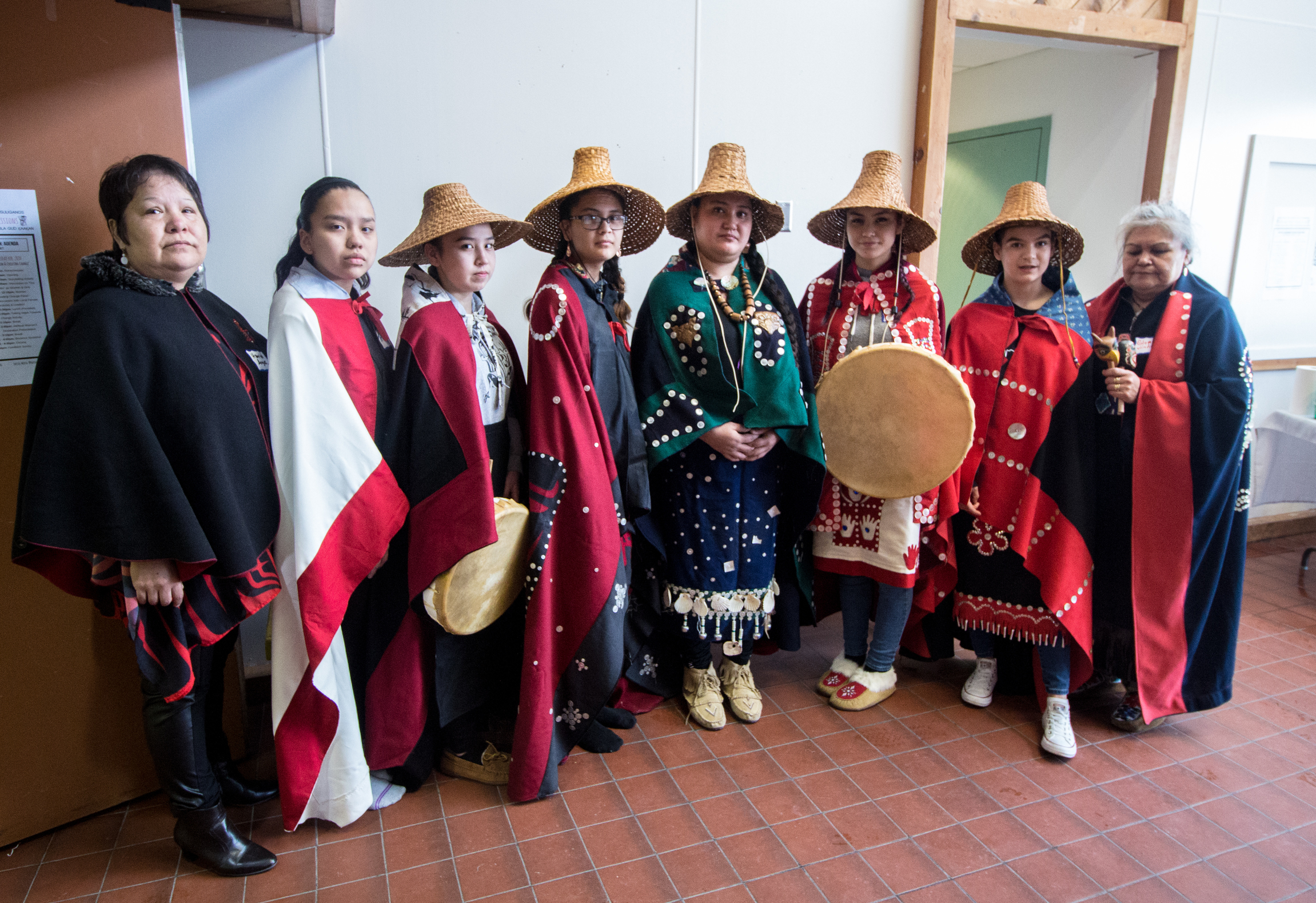Support strong Canadian climate journalism for 2025
The company responsible for devastating an indispensable food harvesting site for the Heiltsuk community in Bella Bella, on the northwest coast of British Columbia, has been charged almost $3 million for violating three different acts. The penalty will be directed towards a government fund. Despite the judge's decision Tuesday, Heiltsuk leadership and community members say no amount of money can change the devastation that has taken place.
In October 2016, the second mate operating a U.S.-owned tugboat fell asleep. The tug and barge ran aground, spilling 110,000 litres of diesel fuel, lubricants, heavy oils and pollutants into the water, contaminating the community's breadbasket, a sacred site that sustained abalone, black cod, clams, cockles, crab, halibut, herring, salmon and more.
“It has been an emotional rollercoaster for our community,” elected Chief Councilor Marilyn Slett told National Observer over the phone. “We all were impacted by the event, and it was triggered again today … The hearing brought us back to that moment, when we found out the Gale Pass had been contaminated.”
Gale Pass is one of many food harvesting sites off the coast of Bella Bella, a community of around 1,400 people. The coastal nation, which has one grocery store in town, has always relied on a healthy ocean for sustenance into the future. When news broke out about the tug running aground, it was a moment of terror, an experience no outsider could fully grasp.

The Heiltsuk Nation is a self-governing nation that has occupied their traditional territories since time immemorial. They have always exercised their inherent and constitutionally protected rights, including rights to steward and harvest resources. Heiltsuk has never surrendered its ancient rights to the lands and marine areas of their traditional territories.
The trauma of the incident has lived on. But if it’s true that trauma can activate a flight or fight response, Heiltsuk fought.
Heiltsuk laws breached
The nation held healing ceremonies for members, launched an investigation report on the incident, joined partnerships advocating for adequate marine response technologies and filed a claim against the federal and provincial governments, as well as the Kirby Corporation, which operated the ship.
A committee was established to review the investigation report and determine whether Heiltsuk traditional laws, Ǧviḷás, were breached in the event. The committee determined that their Ǧviḷás were indeed breached by the Kirby Corporation and the government, which they documented in an adjudication report. The 68-page report, outlines Heiltsuk jurisdiction as one of the most complex maritime Indigenous societies in the world. Rich in Heiltsuk culture, geography and history, the report identifies the spill as an assault on Heiltsuk antiquity.
Chief Harvey Humchitt is a hereditary leader. One of his roles and responsibilities is to protect the Heiltsuk peoples' territories, land and waters from harm. It was this obligation that brought him to the frontlines of the Nathan E. Stewart response when the tug ran aground.
"When we responded to the spill, we weren't properly informed about how serious the incident was," Chief Humchitt said during a press conference in October. "We were given the wrong location and when we arrived, we were not given any resources. When materials and crew arrived, they were ill-equipped and disorganized."
Humchitt said there was little to no communication with the community, no clear direction or on-scene command and no sufficient action taken to mitigate the situation. In the Tribal Council's independent investigation into events before, during and after the spill, Humchitt said their findings were quite different from what the government found.

The report identifies crucial concerns around the way the Nathan E. Stewart was being operated, flawed policies and regulations common to other visiting vessels, he said, adding that the Heiltsuk people paid the price for these policy gaps.
Kirby Corporation was charged with nine counts related to the Nathan E. Stewart spill. As it was a criminal matter, the nation was not advised of the court proceedings. Kirby entered into a plea agreement with the Crown and pleaded guilty to three of these counts, under the Migratory Birds Convention Act, the Fisheries Act and the Pilotage Act.
A judge travelled to Bella Bella, accessible only by plane or boat, to hear victim witness statements presented Tuesday. Community members, from leadership to youth, spoke about the emotional, financial and cultural impacts the spill has had.
In his decision, Judge Hoy fined Kirby with just over $2.9 million in penalties. The money will be directed to the Government of Canada's Environmental Damages Fund.
It was charged $2.7 million for violating the Fisheries Act, $200,000 for the Migratory Birds Act, and $5,000 for violating the Pacific Pilotage Act. To date, the Heiltsuk have not been compensated for the costs of environmental impact assessment for the oil spill, remediation or communal harvest and cultural damages. Their civil case continues in courts.
"This is just the beginning for us, the beginning of a long journey for the Heiltsuk," Slett said. "We did a circle sentencing today, in a way that incorporated some of our customs, but it was hard. We're still feeling the loss, we're still grieving."
Chief Slett said the money isn't enough, it will never be enough.
The judge heard stories from community members, stories from first responders whose lungs filled with thick diesel fumes when they entered their waters, stories of what it was like to deal with the disorganized corporation and government responders in the grueling days that followed, and stories of the loss of a food source that has provided for the Heiltsuk for 700 generations.
It was healing to be heard, Slett said. Even if the people who flew in for the day couldn't ever understand the lasting impact of the spill, the judge listened and acknowledged the loss, saying he understood "money can never heal what has occurred."
"Kirby continues to do business as usual, traversing our territory up and down the coast," Slett said. "We're a coastal community that's left holding the bag, footing the bill."
In an email response, a representative for Kirby Corporation said the company accepts the agreed statement of facts presented to the court on Tuesday, and will comply with the sentence.
“We sincerely regret this incident and we have amended our operating procedures, training, auditing, promotion protocols and equipment to help reduce the potential for future accidents,” the company wrote.
Moving forward, Slett said the nation will continue to fight for justice for the Heiltsuk. She has penned a letter to Kirby Corporation's CEO David Grzebinski, calling for accountability outside of the courts.
"True justice would mean paying for an environmental impact assessment, admitting civil liability, and working openly and honestly to address compensation and remediation for the harm caused by the spill," the chief wrote." You should work with us to help reform antiquated marine pollution compensation laws, rather than hiding behind them."
Slett said the nation has not yet received a response to the call to action.
In the adjudication report, where a special committee comprised of hereditary leadership, knowledge keepers and youth representatives worked to identify how traditional laws were impacted, Heiltsuk provide a pathway forward. Pages 43-54 outline explicitly the ways in which Kirby and the provincial and federal governments can acknowledge, address and overcome the incident.
The Heiltsuk Nation calls on the corporation, but also the provincial and federal governments, to work with them to make things right, develop better response systems and reform laws around compensation, so Indigenous communities aren't left holding the bill the next time there's an oil spill, Chief Slett said.








Comments
Is this an example of the "world class" emergency response the federal government refers to when questions are asked about how they will respond should a super oil tanker, LNG tanker wreck along the BC coast or the Alantic coast for that matter as they permit greater numbers of these ships .